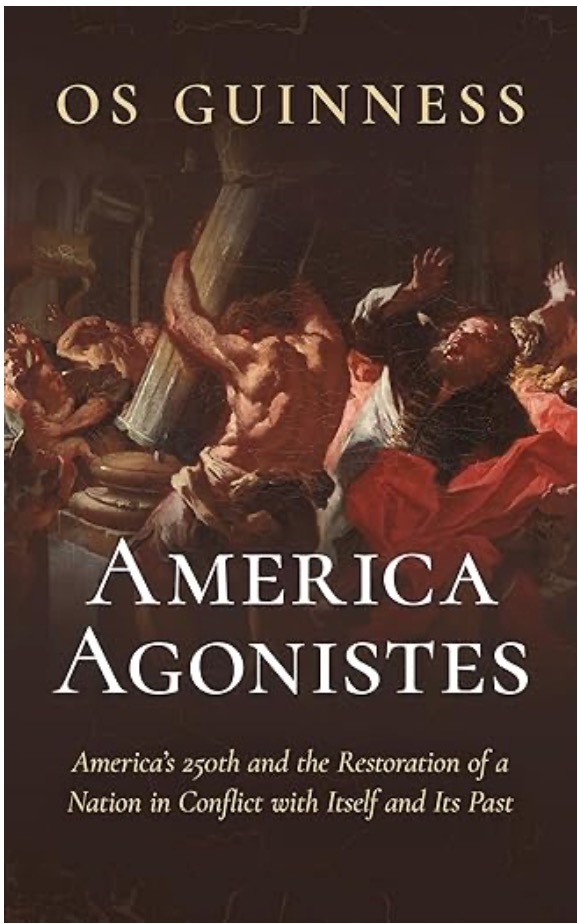
America Agonistes: America’s 250th and the Restoration of a Nation in Conflict with Itself and Its Past
Is the Republic headed for redemption and renewal—or ruin?
Across the ages, the decline and fall of nations and civilizations has left behind only ruins and vanished glories. Free societies are rare. Lasting free societies are rarer still. So, what are the prospects for the American republic at the 250th anniversary of the revolution? Is America approaching its expiration date? What does it mean that seismic cultural conflicts, global tensions, and ideological polarizations over the last half century have left Americans torn over their identity, gaslit because of their history, and uncertain as to their role as the world’s lead society in a turbulent and increasingly authoritarian era?
In America Agonistes, Os Guinness delivers a foreign admirer’s searching examination of the deepening crisis of the great American experiment in freedom. Following on from Our Civilizational Moment, this book is the second of a quartet of studies on the crisis of America and the West. With clarity and conviction, Guinness charts the forces—moral, cultural, political—that are tearing the nation apart. Yet he is no prophet of doom. To make America great again means knowing what made America great in the first place. It means knowing how America’s Jewish and Christian roots have established a way of ordered freedom like no other. It means knowing the secret to renewing the republic in our time.
This is a book for every American citizen who believes in freedom, and for anyone of whatever nation around the world who desires to strive towards a free world alliance and a human-friendly future.
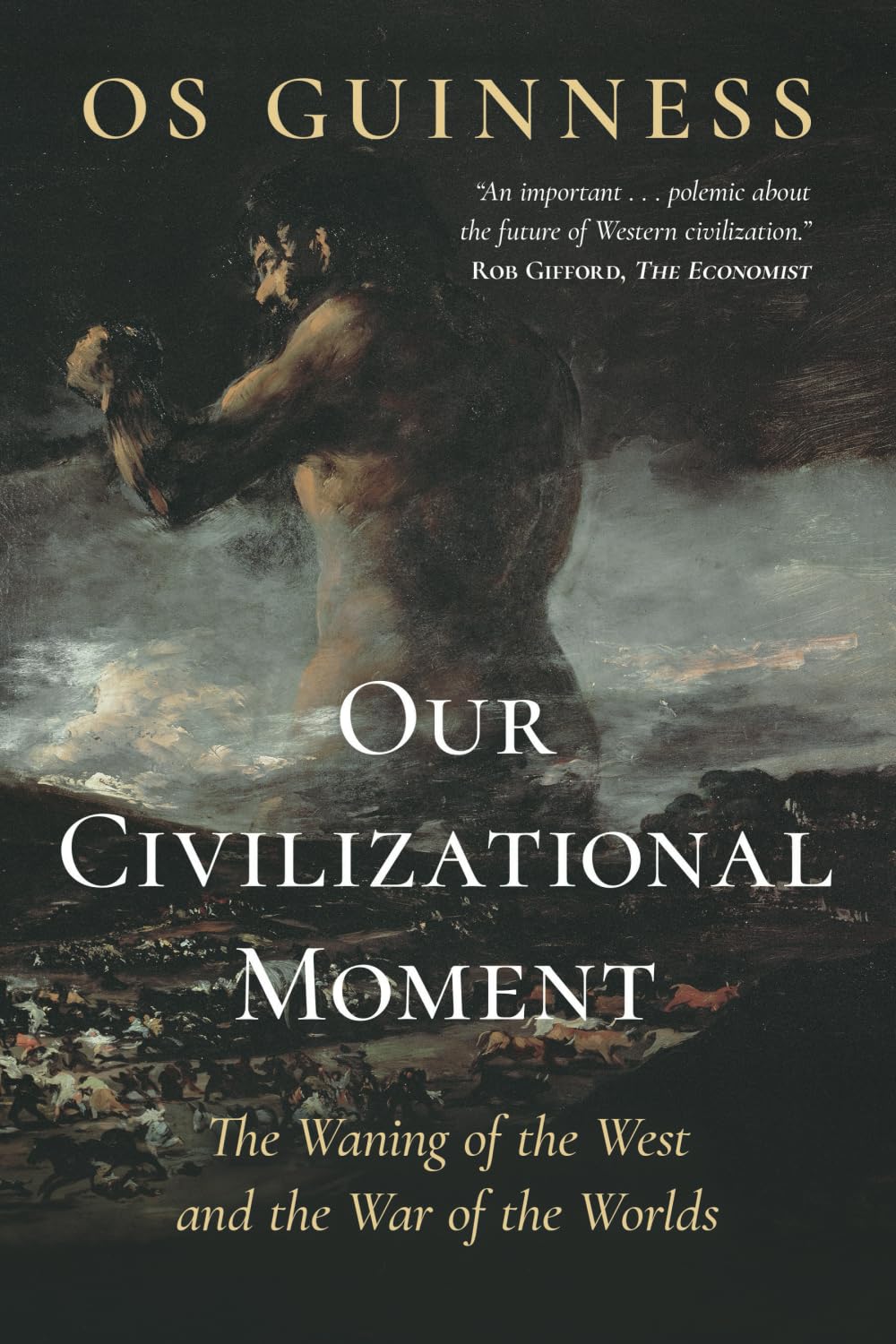
Our Civilizational Moment: the waning of the West and the war of the worlds
Where do you find the great civilizations of the world?
In ruins, in museums, and in history books. Each one in its time rose, flourished, and then declined and fell. Is the West facing its own civilizational moment today?
A civilizational moment is a critical transition phase in the rise, course, and decline of a civilization when a civilization loses its decisive connection with the dynamic that inspired it. Such a moment must then issue in one of three broad options: a renewal of the dynamic that inspired the civilization in the first place, a successful replacement of the original dynamic by another, or the decline of the civilization. In sum, the issue for a civilization in a civilizational moment is its vision of ultimate reality: Is the civilization in living touch with the ideas, ideals, and inspiration that created it in the first place and chat it needs no to continue to flourish? Or, with its roots severed, is it destined to decline and die?
Guinness’s analysis is wide-ranging and hard-hitting, but he ends with hope.
This book is for all who care about the state of the world, who strive for a human-friendly future, and who are ready to make a stand for what matters.
civilization.
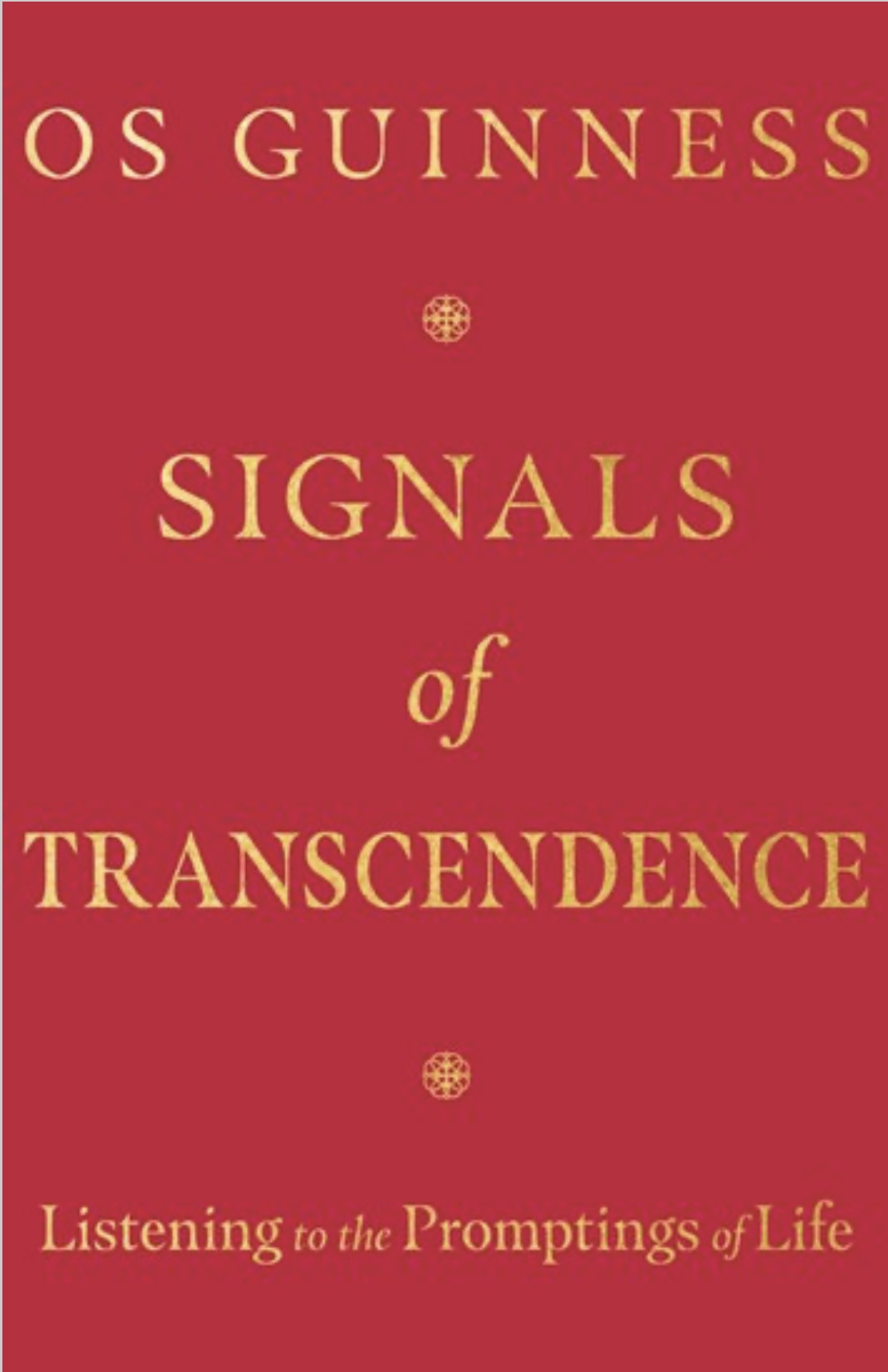
Signals of Transcendence: Listening to the Promptings of Life
There must be something more to life.
The modern world is a place of great distraction, and it can be difficult to make sense of our human existence. But at some point in our lives, we may experience particular moments that prompt us to search for something deeper. Sociologist Peter Berger described these hints and clues as “signals of transcendence” that awaken us to unseen realities.
Os Guinness tells stories of people who experienced signals of transcendence and followed them to find new meaning and purpose in life. Notable figures such as Leo Tolstoy and C. S. Lewis as well as lesser-known individuals experienced a variety of promptings that signaled to them that life could not continue as they had thought. Through unsatisfied longings or disillusionments that yet yielded glimpses of beauty or joy, these moments drew people toward epiphanies of transformation. And the same can be true for us, should we have the courage to follow the signals wherever they may lead.
Listen for the signals. And discover what more awaits those with ears to hear.
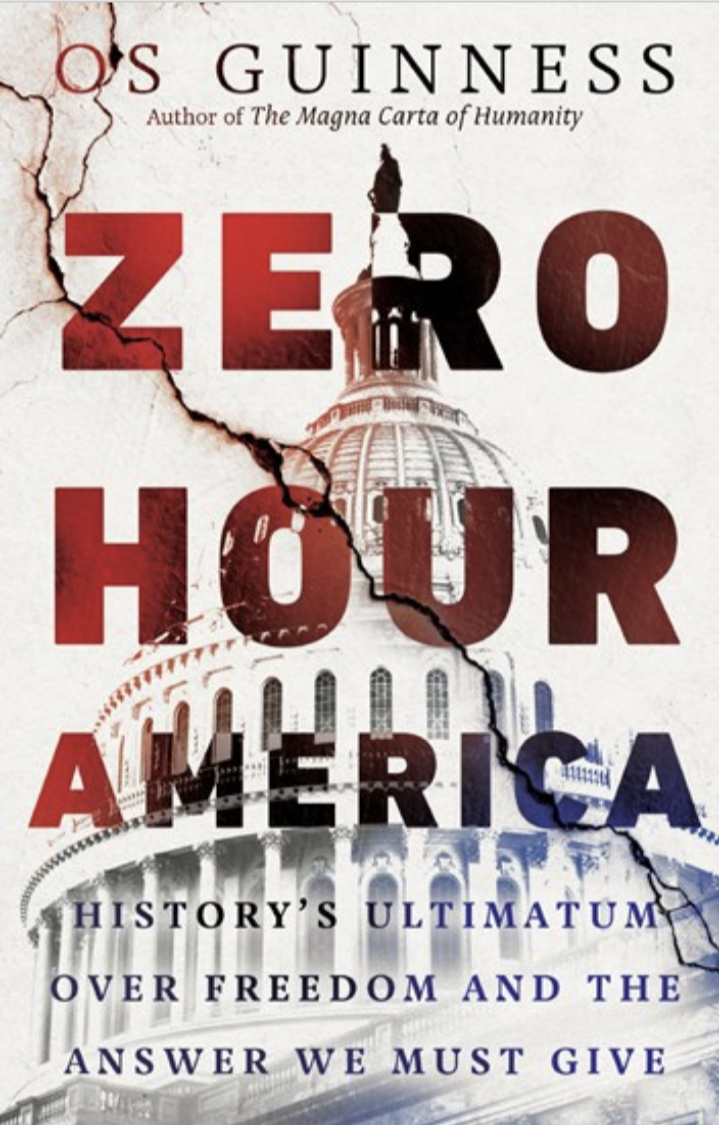
Zero Hour America: History’s ultimatum over freedom and the answer we must give
America has lost its way. And America will fall—unless.
Americans are approaching a “zero hour” for the republic and its distinctive view of ordered freedom. America is caught between two revolutions and alternately suppresses and squanders freedom with a prodigal carelessness, with little understanding of the responsibilities that freedom requires.
Os Guinness warns that if America abandons its distinctive ideals and ideas, we will have carved into the chronicles of history yet another example of the failure of a free society. Like other crucial times in world history, the present crisis is a “civilizational moment” and also a pivot point that could lead to national renewal. Outlining seven key foundation stones of freedom, Guinness lays out a pathway for defining and ordering freedom, righting national wrongs, and passing freedom’s baton from generation to generation.
Human freedom is precious and rare, and citizens who prize it must do what it takes to renew and sustain societies that are free for all of their members. America’s window of opportunity is brief, and the alternative to renewal is bleak. The present moment must not be missed.
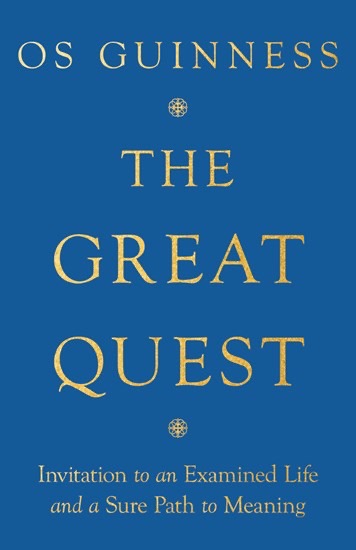
The Great Quest: Invitation to an Examined Life and a Sure Path to Meaning
“The unexamined life is not worth living.” —Socrates
What is life all about? What are we here for? Is there any meaning or purpose to our existence? Thinkers throughout the centuries have pondered these questions. While the distractions of the modern world prevent many from grappling seriously with such matters, the truth is that humans cannot live without meaning any more than we can live without breathing or eating.
Os Guinness invites us to examine our lives and join the great quest for meaning and a life well lived. For those who are up to Socrates’ challenge, it is a search that is indispensable to making the most of life. Guinness charts the course of the thinking person’s journey toward faith and meaning, calling for a firm grasp of reason, an honest awareness of conscience, and a living sense of wonder. He affirms that there is a time for questions, and that following those questions can indeed lead us to answers, evidence, and commitment.
When life becomes a question, the search is on for an answer. Come find yourself on a sure path to meaning.
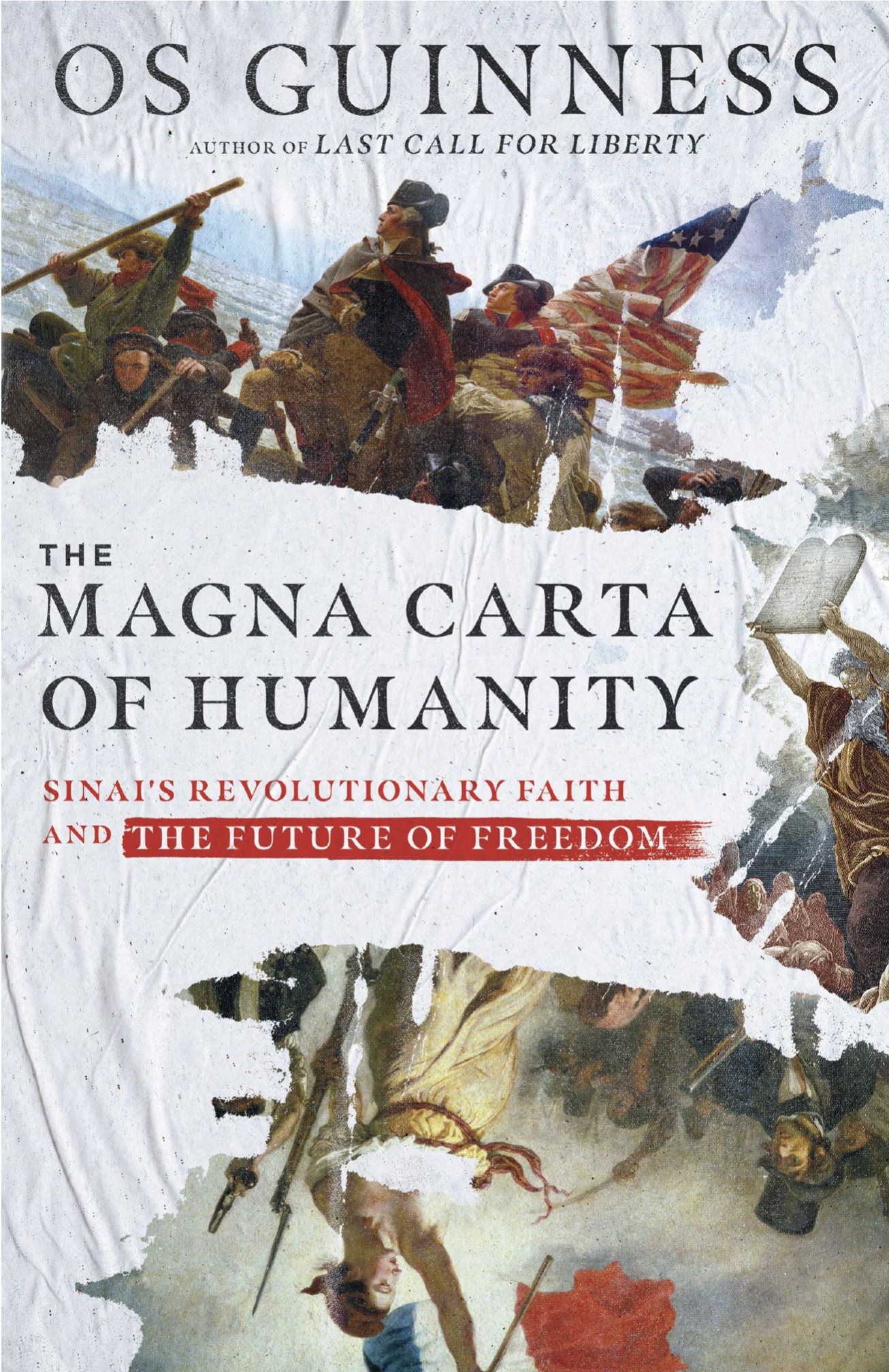
The Magna Carta of Humanity: Sinai’s Revolutionary Faith and the Future of Freedom
In these stormy times, loud voices from all fronts call for revolution and change. But what kind of revolution brings true freedom to both society and the human soul? Cultural observer Os Guinness explores the nature of revolutionary faith, contrasting between secular revolutions such as the French Revolution and the faith-led revolution of ancient Israel. He argues that the story of Exodus is the highest, richest, and deepest vision for freedom in human history. It serves as the master story of human freedom and provides the greatest sustained critique of the abuse of power. His contrast between “Paris” and “Sinai” offers a framework for discerning between two kinds of revolution and their different views of human nature, equality, and liberty. Drawing on the Hebrew and Christian Scriptures, Guinness develops Exodus as the Magna Carta of humanity, with a constructive vision of a morally responsible society of independent free people who are covenanted to each other and to justice, peace, stability, and the common good of the community. This is the model from the past that charts our path to the future. “There are two revolutionary faiths bidding to take the world forward,” Guinness writes. “There is no choice facing America and the West that is more urgent and consequential than the choice between Sinai and Paris. Will the coming generation return to faith in God and to humility, or continue to trust in the all sufficiency of Enlightenment reason, punditry, and technocracy? Will its politics be led by principles or by power?” While Guinness cannot predict our ultimate fate, he warns that we must recognize the crisis of our time and debate the issues openly. As individuals and as a people, we must choose between the revolutions, between faith in God and faith in Reason alone, between freedom and despotism, and between life and death.
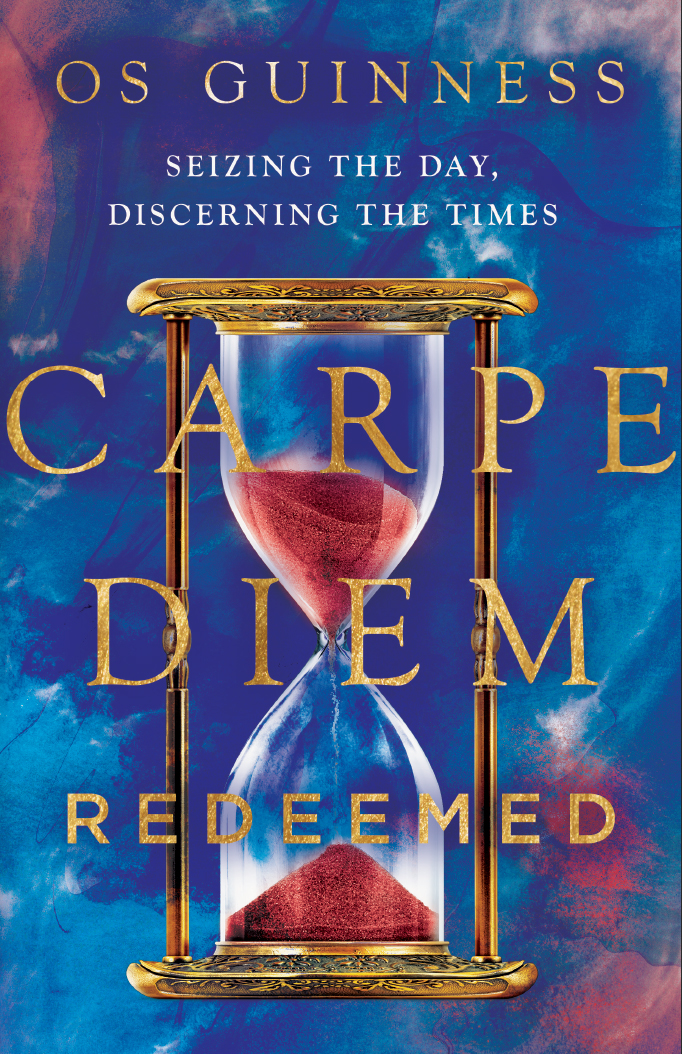
Carpe Diem Redeemed: Seizing the Day, Discerning the Times
You only live once―if then. Life is short, and it can be as easily wasted as lived to the full. In the midst of our harried modern world, how do we make the most of life and the time we have? In these fast and superficial times, Os Guinness calls us to consequential living. In strong contrast to both Eastern and secularist views of time, he reorients our very notion of history, not as cyclical nor as meaningless, but as linear and purposeful. In the Judeo-Christian tradition, time and history are meaningful, and human beings have agency to live with freedom and consequence in partnership with God. Thus we can seek to serve God’s purpose for our generation, read the times, and discern our call for this moment in history. Our time on earth has significance. Live rightly, discern the times, and redeem the day.
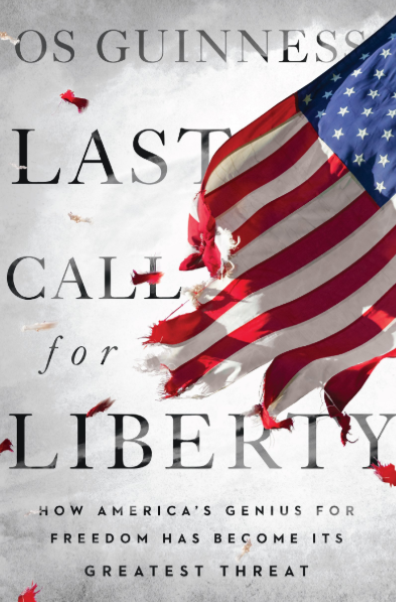
Last Call for Liberty: How America’s Genius for Freedom Has Become Its Greatest Threat
The hour is critical. The American republic is suffering its gravest crisis since the Civil War.Conflicts, hostility, and incivility now threaten to tear the country apart. Competing visions have led to a dangerous moment of cultural self-destruction. This is no longer politics as usual, but an era of political warfare where our enemies are not foreign adversaries, but our fellow citizens.
Yet the roots of the crisis are deeper than many realize. Os Guinness argues that we face a fundamental crisis of freedom, as America’s genius for freedom has become her Achilles’ heel. Our society’s conflicts are rooted in two rival views of freedom, one embodied in “1776” and the ideals of the American Revolution, and the other in “1789” and the ideals of the French Revolution. Once again America has become a house divided, and Americans must make up their minds as to which freedom to follow. Will the constitutional republic be restored or replaced?
This grand treatment of history, civics, and ethics in the Jewish and Christian traditions represents Guinness’s definitive exploration of the prospects for human freedom today. He calls for a national conversation on the nature of freedom, and poses key questions for concerned citizens to consider as we face a critical chapter in the American story. He offers readers a checklist by which they can assess the character and consequences of the freedoms they are choosing.
In the tradition of Alexis de Tocqueville, Guinness provides a visitor’s careful observation of the American experiment. Discover here a stirring vision for faithful citizenship and renewed responsibility, not only for the nation but also for the watching world.
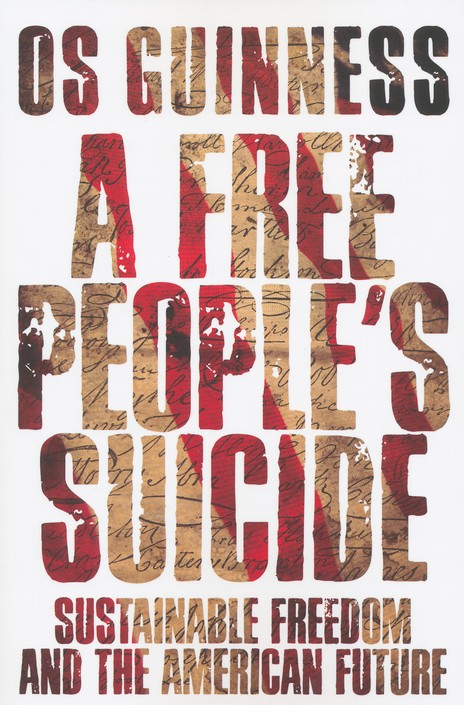
A Free People’s Suicide: Sustainable Freedom and the American Future
Nothing is more daring in the American experiment than the founders’ belief that the American republic could remain free forever. But how was this to be done, and are Americans doing it today?
It is not enough for freedom to be won. It must also be sustained. Cultural observer Os Guinness argues that the American experiment in freedom is at risk. Summoning historical evidence on how democracies evolve, Guinness shows that contemporary views of freedom–most typically, a negative freedom from constraint– are unsustainable because they undermine the conditions necessary for freedom to thrive. He calls us to reconsider the audacity of sustainable freedom and what it would take to restore it.
“In the end,” Guinness writes, “the ultimate threat to the American republic will be Americans. The problem is not wolves at the door but termites in the floor.” The future of the republic depends on whether Americans will rise to the challenge of living up to America’s unfulfilled potential for freedom, both for itself and for the world.
